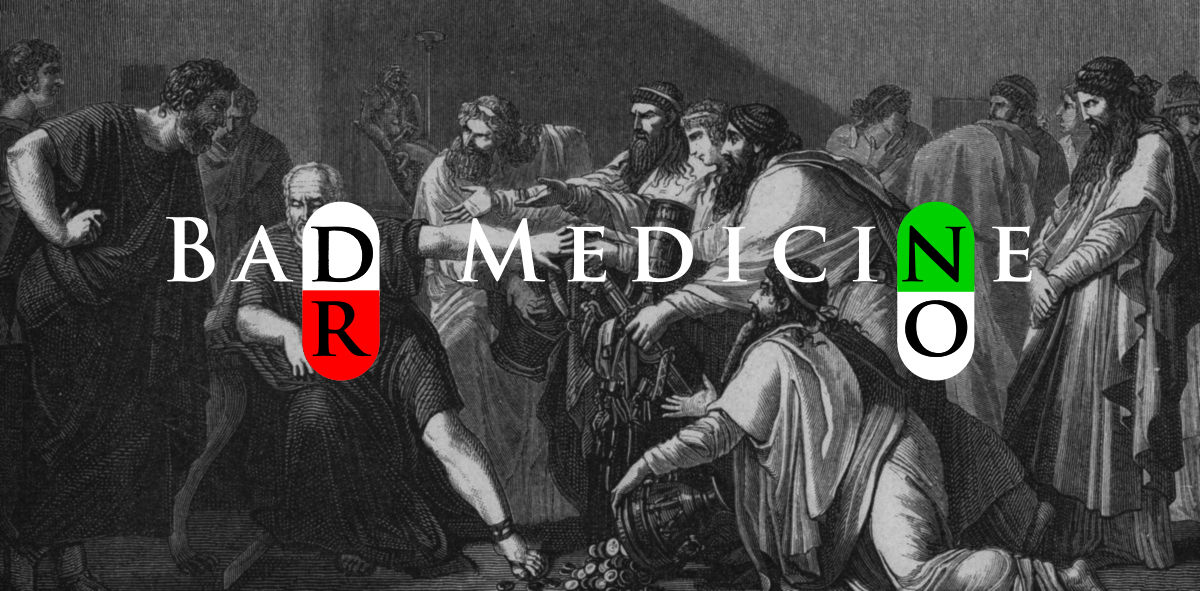The Data Delusion

One of the most exciting and at the same time frightening developments of recent years has been our ability to collect and analyse vast amounts of data. Something of the sort has always been possible, but it was only with the arrival of cheap personal computers that ologies like epidemiology have been able to move from pencilled clustered tally marks ‘ |||| ‘ analysed with back of the envelop chi-squared tests via the hidden 1s and 0s of computers to massive data sets probed in ways quite unfathomable even only a few decades ago. Back in 1982, the year Dr No qualified, no one had heard of logistic regression or data modelling. Google’s Ngram Viewer — itself a wonderful example of data collection and analysis — shows that both logistic regression and data modelling took off in the mid nineteen eighties. Add the discrete citizen surveillance device more commonly known as the smart phone, and the explosion in social media use, which have together enabled the collection of personal data on a huge scale, and we now find ourselves living in a world where data is everything, and everything is data; a world in which once unique individuals have become transformed into numbers, to be probed, analysed and described at will, not as individuals, but as data.
Nowhere is this more the case than in the coronavirus pandemic. Everything about the pandemic is numbers: numbers of tests, positives, admissions and deaths; R numbers and fatality rates; workers furloughed and jobs lost and GDP contractions; all are numbers. Even the disease itself and the virus itself are infected with numbers: covid–19 and SARS-Cov–2. Without numbers, there would be no pandemic — something that even Trump gets — no tests, no positives, no pandemic. The opposite of course is also true. Do more tests, you get more positives. Decree that once a patient is PCR positive, or more recently, tested positive in the last 28 days, they will always be a covid death, even when the patient patently died from something unrelated to covid. We are awash in a sea of numbers, charts, models and numerology on an unprecedented scale.
These numbers not only describe the pandemic, they also drive our response to the pandemic. We think in numbers and governments act because of the numbers. When the R number goes up, the government tightens the lockdown. When an even more arbitrary number such as the positives per 100,000 population go up, the government tightens the lock down; and when the numbers go down, the lockdowns are eased. The failing comedy of errors that is Test and Trace is all about numbers: numbers traced and not traced. The whole pandemic apparatus is one vast conglomeration of numbers, describing this, driving that, delivering, or not delivering, the other. Numbers are even the lingua franca on the covid response trading floor: cases prevented for jobs destroyed, deaths averted for livelihoods ruined.
And yet, not everything that counts can be counted, and not everything that can be counted counts (probably not Einstein, but a sociologist called William Bruce Cameron). The very act of reducing things to numbers automatically removes information that cannot be reduced to a number. The death with covid in an octogenarian with too many co-morbidities and the suicide of a young single parent overwhelmed by lockdown are both one death, but only the driest of actuaries would accord each death the same. And then there are things that simply cannot be counted: the aggravated grief of a spouse who cannot be with their dying partner, and the aching longing of a grandparent for the touch of a grandchild, or the emptiness of Christmas cancelled. Such things are of immense value, but because they cannot be counted, they do not count.
This invisible but immense weight of human suffering is invisible because the data delusion: that only that which can be counted matters. Never mind that much of the data is phoney — positives that are not cases, covid deaths that are not covid deaths — the fact that they are numbers gives them solidity and respectability against which the just as important but all too ephemeral stand no chance. Even worse, the data delusion gives rise to a secondary delusion: the moral certitude that, in the belief that the numbers can be manipulated by imposing measures, measures should be imposed, paving the way for the draconian, punitive regulations that constantly pen us in as we attempt to go about our daily lives, trying, but blocked, from being fully human. In our rush to count lives, we forget about life.
Once the data delusion, and its pernicious secondary delusion are recognised, the moral basis for imposed draconian regulations evaporates. There are immense realms of our experience that we all value greatly, but cannot put a price on. Above all, these are personal values, something each one of us can internally weigh and value personally, but to which we cannot, however hard we try, ever explicitly attach a number. Even if we could, which we can’t, we would find the numbers vary, because we are not the same, we are individuals, with similar but differing values. We have come full circle: once we reduce ourselves to numbers, we lose our individuality.
This, Dr No believes, has been one of the greatest harms of the response to covid–19: the erosion of individual values, and our ability to make our own decisions on things that matters to us. To use a rather ghastly modern phrase, the sense of agency, the subjective sense of being in control of and responsible for our world, and what happens in it, is central to our well-being. Draconian imposed regulations remove that sense, and unless — there are plenty of examples where this does apply — there is an overwhelming public interest argument to the contrary, then such impositions have no place in modern civic society. Instead, we should be trusted to value what matters to us, and make our own sensible decisions. At the risk of creating a new reductio ad argument, reductio ad Sweden*, if the Swedes can do it, why the hell can’t we?
* And so Godwin’s Second Law: as an online covid discussion grows longer, the probability of a comparison involving Sweden approaches one.

On the money as ever Dr No. But the masses are told that there can be no individualism in a pandemic, and that, as with all things done in the name of public health, should not be questioned.
Can you provide a translation into Welsh?
Shawn – indeed, that is very much the problem. Even worse, the ‘no individualism’ also extends to scientists who dare to question the Establishment – a shameful dereliction of the spirit of scientific enquiry.
dearieme – well, dearieme! Maybe Google Translate will do the job?
Y Delusion Data
Unfortunately Gaelic isn’t available on Google Translate…
The title “The Data Delusion” reminds me of a book title: “The Diet Delusion”, which is the unfortunate choice of Gary Taubes’ UK publisher for the book published in the USA as “Good Calories, Bad Calories”.
The original title is far better, as it reminds us of one of Taubes’ main revelations: that one calorie is not equivalent to one other calorie. (A calorie from grass-fed beef or butter, or wild salmon, or organic broccoli, contains the same amount of metabolic energy as a calorie from sugar or flour – but together with vital minerals, vitamins and other health-giving compounds).
Nevertheless, “The Diet Delusion” carries the same implication as “The Data Delusion”: that you can reduce complex phenomena to single integers without losing essential information.
The 18th century investigators who pioneered the science of nutrition were hired by manufacturers and other employers to find out the cheapest possible diet that would keep their workers able to continue digging and pumping and carrying and operating machinery. Provided the workers lived long enough for their children to be self-supporting and ready for employment, the employers didn’t care if they died at 30 or 40. Thus the conclusion was firm: sugar and refined white flour were the ideal diet, supplying the energy required for work without wasting any money on frivolous luxuries such as vitamins.
This early “reductio ad data” has cast a long shadow, and is still responsible for countless illnesses and premature deaths.
Not only must we beware of excessive and simplistic abstraction – we should also keep in mind from whose point of view the numbers are being “optimised”.
‘The very act of reducing things to numbers automatically removes information that cannot be reduced to a number.’ – inspired and succinct, thank you.
I’ve seen a few ‘Sweden, yes, or no’ arguments this morning; the main one being, ‘But Sweden is different’. Yes, Sweden might be different, but the way Sweden is choosing to do Sweden demonstrates how England could chose to do England. (I omit Wales, who seem to have contracted a bad case of Data, and Scotland, who seem to be dying to go the the ‘catch-it party’…)
I’m hoping more people, and soon enough, realise, ‘I am being reduced to data, which erodes my sense of individuality, which has me forget my own agency*, which means I don’t notice I am now a pawn in their ultimate control game’. I hope this particular piece by Dr No is seen by as many as possible.
(* A modern word, yes, but one I like and which I hear used a lot. Ghastly or not, agency is something I refuse to relinquish.)
Tom – thanks, a very cogent example.
Annie – thanks. Perhaps ‘agency’ is tarnished for me by its other uses – tacky employment agencies, and even tackier government ‘executive agencies’ – like PHE. But the meaning if not the word as we are using it is vital and central to our well being.
‘I am being reduced to data’: there is another delusion, not included in the post, that this processed data can then be thrown back at you, to define you as something you are not. The classic example was this summer’s exam result fiasco, which used aggregated data and a silly equation* — it wasn’t even an algorithm: equation is a = b + C, algorithm is set of procedural steps — not to predict grades, but to award grades.
* Pkj = (1-rj)Ckj + rj(Ckj + qkj – pkj)